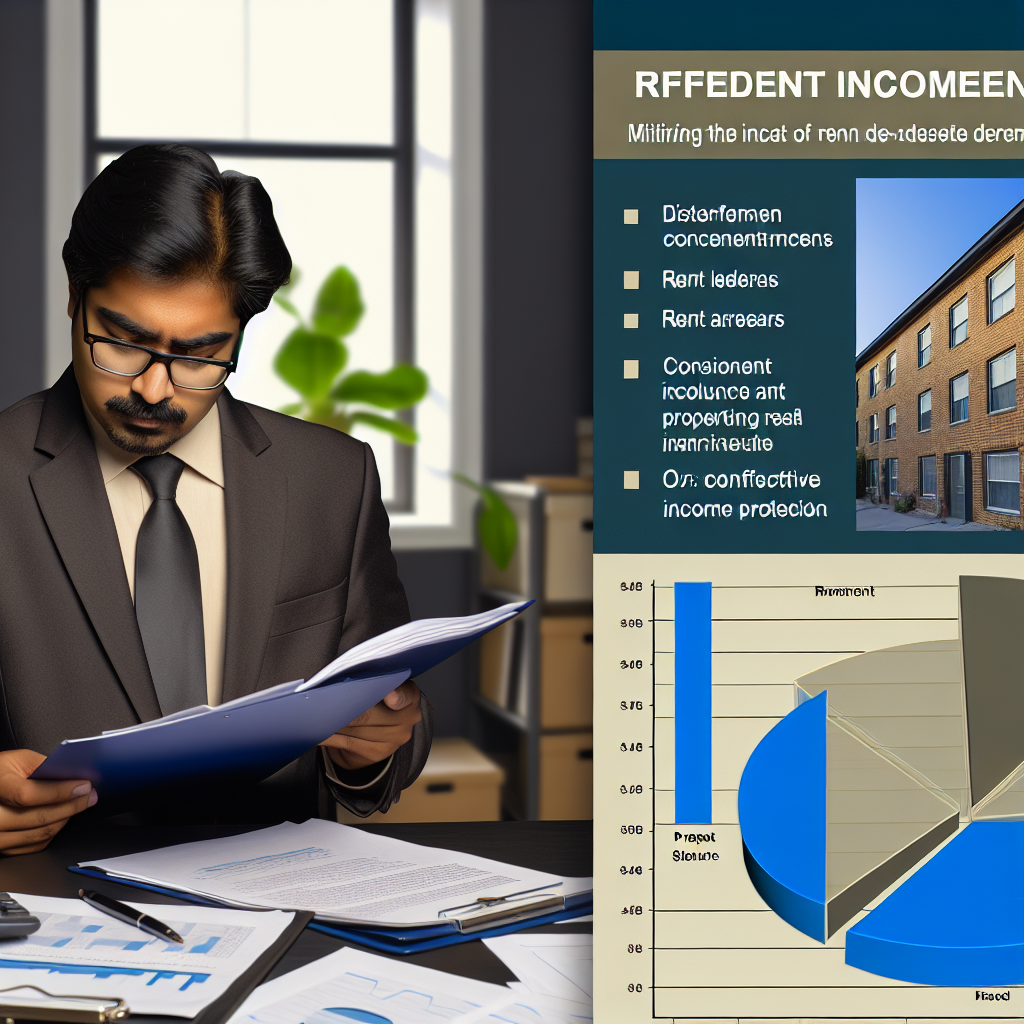Understanding Rent Arrears
Definition of Rent Arrears
Rent arrears occur when tenants fail to pay their rent on time.
These arrears can accumulate over various months if not addressed.
Understanding the definition helps landlords manage their properties effectively.
Common Causes of Rent Arrears
Several factors contribute to rent arrears among tenants.
Job loss is a primary reason for delayed payments.
Life events such as illness can also impact a tenant’s ability to pay.
Additionally, unexpected expenses may lead to financial strain.
If tenants manage their finances poorly, this can escalate arrears.
The Impact of Rent Arrears on Landlords
Rent arrears can significantly affect a landlord’s income.
It reduces cash flow and creates financial uncertainty.
Moreover, prolonged arrears may result in eviction proceedings.
This process can be costly and time-consuming for landlords.
Ultimately, timely management of arrears protects property income.
Legal Framework
Tenant Rights
Tenants have specific rights that protect them in rental agreements.
These rights usually include the right to a safe and habitable dwelling.
Transform Your Real Estate Decisions
Unlock personalized real estate insights crafted just for you. Get actionable advice designed to amplify your success.
Get StartedAdditionally, tenants have the right to privacy in their rented homes.
It is also crucial for tenants to receive proper notice before eviction.
Understanding these rights helps tenants safeguard their living conditions.
Landlord Obligations
Landlords must uphold their legal obligations to provide safe housing.
They are responsible for maintaining the property in good condition.
Furthermore, landlords must respect tenant privacy by providing notice before entry.
They must also handle repair requests promptly to ensure safety.
Failure to meet these obligations can lead to legal repercussions.
Understanding Lease Agreements
Lease agreements outline the terms of the rental contract.
Both parties must agree on terms before signing the lease.
Rent payment terms and maintenance responsibilities should be clear.
A well-drafted lease protects both tenant and landlord rights.
Reviewing lease agreements thoroughly can prevent future disputes.
Resolution of Disputes
Disputes between landlords and tenants can arise frequently.
Showcase Your Real Estate Business
Publish your company profile on our blog for just $200. Gain instant exposure and connect with a dedicated audience of real estate professionals and enthusiasts.
Publish Your ProfileBoth parties should first attempt informal resolution methods.
If necessary, mediation services can also aid in resolving issues.
Legal actions should be a last resort for both landlords and tenants.
Understanding local dispute resolution resources enhances communication.
Effective Communication Strategies with Tenants in Arrears
Establish Open Lines of Communication
Effective communication begins with understanding the tenant’s situation.
As a landlord, initiate conversations early and often.
Share your concerns about their payment delays tactfully.
Encourage tenants to share any issues they face.
Use a friendly tone to foster a supportive environment.
Utilize Various Communication Channels
Different tenants prefer different communication methods.
Consider using phone calls, emails, or texts.
This flexibility helps you connect with tenants more effectively.
Assess which channel encourages the best response.
Always document your communications for future reference.
Stay Professional and Understanding
Maintain professionalism even when discussing sensitive topics.
Show empathy towards your tenants’ circumstances.
It’s important to express concern without appearing aggressive.
Listening to their side can strengthen your relationship.
Offer solutions rather than solely demanding payments.
Set Clear Expectations
Clarify your expectations regarding rent payment schedules.
Discuss potential consequences of ongoing arrears openly.
Provide a written summary of any agreements reached.
This ensures both parties understand their responsibilities.
A clear timeline can help motivate timely payments.
Explore Payment Plans
Consider offering structured payment plans for tenants struggling financially.
Having flexible payment options can relieve stress for tenants.
Outline any adjustments clearly in writing.
This allows them to stay in their home while paying off dues.
Regularly review these plans to ensure compliance.
Follow Up Regularly
Regular follow-ups remind tenants of their payment obligations.
Showcase Your Real Estate Business
Publish your company profile on our blog for just $200. Gain instant exposure and connect with a dedicated audience of real estate professionals and enthusiasts.
Publish Your ProfileYour proactive approach conveys that you care about them.
Use these check-ins to adjust payment plans if needed.
Acknowledge payments made to encourage positive behavior.
Celebrate milestones to maintain tenant motivation.
Learn More: How To Manage Security Deposits And Advance Rent Payments Legally
Creating a Solid Lease Agreement to Prevent Rent Arrears
Importance of a Thorough Lease Agreement
A detailed lease agreement is crucial for both landlords and tenants.
It sets clear expectations for payment terms.
Moreover, it outlines the responsibilities of each party.
This clarity can minimize misunderstandings in the future.
Key Components of a Lease Agreement
Include essential elements to protect your investment.
First, specify the rent amount and due date.
Next, outline late payment penalties.
Additionally, include a grace period if applicable.
Furthermore, define terms for security deposits.
This can safeguard against potential damages.
Including Maintenance and Repair Responsibilities
Clarify maintenance responsibilities in the lease.
This ensures tenants know their obligations.
Also, it prevents disputes over repair duties.
For example, include who handles lawn care and plumbing issues.
Provisions for Lease Termination
Outline the necessary conditions for lease termination.
Include procedures for eviction if necessary.
Clearly state how much notice must be given.
Additionally, specify any applicable fees for early termination.
Consider Legal Compliance
A lease must comply with local and state laws.
Research tenant rights and laws in your area.
This will help you create a legally binding agreement.
Also, consider consulting with a legal professional.
Importance of Communication
Encourage open communication with your tenants.
Make it clear they can approach you with concerns.
This approach fosters a positive landlord-tenant relationship.
Showcase Your Real Estate Business
Publish your company profile on our blog for just $200. Gain instant exposure and connect with a dedicated audience of real estate professionals and enthusiasts.
Publish Your ProfileThus, it can also help address potential issues early.
Explore Further: Tenant Screening Tools And Techniques For Real Estate Investors
Utilizing a Rental Collection System to Track Payments
Benefits of a Rental Collection System
A rental collection system streamlines payment tracking for landlords.
It offers real-time visibility of tenant payment statuses.
This system reduces the chances of human error in record-keeping.
With automated reminders, it encourages timely rent payments.
Moreover, it helps identify habitual late payers quickly.
Choosing the Right Rental Collection System
Selecting the right system enhances the efficiency of rent collection.
First, consider the system’s user-friendliness for both landlords and tenants.
Next, evaluate its compatibility with various payment methods.
Also, check for features like payment reminders and late fee assessments.
Finally, ensure it has reliable customer support available.
Implementing the System Efficiently
Implementing the rental collection system requires careful planning.
Begin with assessing your current payment tracking processes.
Next, communicate the new system to your tenants clearly.
Offer guidance on how to use the system effectively.
Additionally, monitor the system for issues during the initial phase.
Monitoring Payment Trends
Monitoring payment trends is crucial for optimizing rental income.
Use the system’s analytics features to spot patterns in payments.
This information can guide your decisions on rent adjustments or policies.
Furthermore, it helps you address problem tenants proactively.
Maintaining Open Communication with Tenants
Open communication fosters trust and responsibility among tenants.
Encourage tenants to reach out with payment concerns or questions.
Provide multiple contact methods for ease of communication.
Moreover, address any issues raised promptly and effectively.
Uncover the Details: How to Optimize Rent Pricing for Long-Term Tenant Retention
Developing a Payment Plan for Tenants Facing Financial Hardship
Understanding the Tenant’s Situation
Begin by having an open dialogue with your tenant.
This conversation allows you to understand their financial difficulties.
Ask pertinent questions about their current situation.
This creates a foundation of trust and transparency.
Showcase Your Real Estate Business
Publish your company profile on our blog for just $200. Gain instant exposure and connect with a dedicated audience of real estate professionals and enthusiasts.
Publish Your ProfileAssessing the Amount Owed
Get a clear picture of the total rent arrears.
Include any late fees or additional charges that may apply.
Document the amount owed in writing for clarity.
This documentation serves as a reference for both parties.
Preparing a Flexible Payment Plan
Consider a payment plan that fits your tenant’s budget.
Offer options for how they can repay the owed amount.
You might suggest smaller payments over an extended time.
This approach can ease financial pressure on your tenant.
Formalizing the Agreement
Document the agreed-upon terms in a written contract.
Ensure that both you and your tenant sign this document.
Include specific details such as payment dates and amounts.
This protects both parties and clarifies expectations.
Maintaining Communication
Keep in touch with your tenant throughout the repayment process.
Check in periodically to see if they encounter further difficulties.
This demonstrates your willingness to be supportive.
Open communication can reduce misunderstandings.
Preparing for Potential Challenges
Be ready for unforeseen issues that may arise.
Discuss contingencies in your payment plan agreement.
These could include temporary pauses in payments.
Flexibility can lead to a more successful repayment outcome.
You Might Also Like: Tenant Screening Best Practices For First-Time Real Estate Investors

Preventive Measures
Regular Property Inspections
Regular property inspections help maintain property condition.
They also foster good relationships with tenants.
During inspections, look for signs of damage or neglect.
Addressing issues early prevents costly repairs later.
Schedule inspections at least twice a year.
This practice keeps lines of communication open.
Discuss any concerns with tenants during visits.
Provide feedback on maintenance needs and expectations.
Tenant Screenings
Thorough tenant screenings are crucial for success.
Showcase Your Real Estate Business
Publish your company profile on our blog for just $200. Gain instant exposure and connect with a dedicated audience of real estate professionals and enthusiasts.
Publish Your ProfileCheck backgrounds to assess financial stability.
Review credit histories to gauge reliability.
Contact previous landlords to gather insights.
Ask for references from credible sources.
Set clear screening criteria to ensure fairness.
A strong screening process reduces the risk of arrears.
Choosing the right tenants contributes to lasting tenancies.
When and How to Initiate Eviction Proceedings Safely
Recognizing the Need for Eviction
Identifying persistent non-payment is crucial for landlords.
Rent arrears often signal deeper tenant issues.
Addressing late payments promptly is essential.
Understanding local laws can guide your decisions.
Communicating with the Tenant
Open communication is vital before initiating eviction.
Discussing payment plans can be beneficial.
Offering flexibility may keep good tenants in place.
Using written communication provides a record of efforts.
Documenting Everything
Diligently keep records of all interactions with tenants.
Document payment history, including late notices.
This evidence may be crucial during proceedings.
Understanding the Legal Process
Research the eviction process in your locality.
Every region has specific regulations to follow.
Understanding timelines and required notices is vital.
Consulting with a legal expert can prevent pitfalls.
Filing for Eviction
Prepare all necessary documents for court submission.
Ensure all grounds for eviction are legally justifiable.
Follow the required procedures for filing accurately.
Be mindful of any local court fees involved.
Preparing for Court
Gather all relevant documentation before the hearing.
This may include lease agreements and payment records.
Clearly present your case to the judge.
Be professional and respectful throughout the process.
Showcase Your Real Estate Business
Publish your company profile on our blog for just $200. Gain instant exposure and connect with a dedicated audience of real estate professionals and enthusiasts.
Publish Your ProfileAfter the Hearing
Await the court’s decision with patience.
If favorable, ensure the eviction is executed legally.
Work with local authorities if necessary.
Continue communicating with the tenant about timelines.
Engaging a Property Management Company
Benefits of Hiring a Property Management Company
Property management companies streamline the rental process for landlords.
They handle tenant screening, ensuring qualified renters occupy your property.
Furthermore, they manage all tenant communications, reducing your workload.
This includes handling disputes, addressing maintenance requests, and collecting rent.
As a result, this allows for a more passive income stream for property owners.
Additionally, professional management companies often have knowledge of local laws.
They can help ensure compliance with regulations, reducing your legal risks.
Moreover, many companies have established networks of maintenance professionals.
This can lead to quicker repairs and better prices for services needed.
Considerations Before Hiring a Management Company
Not all property management companies are the same.
First, assess the company’s reputation and client reviews.
A solid reputation often indicates effective management practices, resulting in steady income.
Secondly, examine their fee structures carefully.
Some companies charge flat fees while others take a percentage of rent collected.
Be sure to understand all costs involved before entering a contract.
Thirdly, clarify which services are included in the management fee.
Some companies may charge extra for tenant placement or maintenance services.
In addition, ensure the company aligns with your property goals and values.
Communication style is also essential, as you’ll want regular updates on your property.
Finding the Right Property Management Company
Start by asking for recommendations from fellow landlords.
Online reviews can also provide insights into potential companies.
Schedule interviews with prospective companies for personalized assessments.
During these meetings, ask detailed questions about their processes.
Additionally, request references from current or past clients.
By collecting various opinions, you can gain clearer perspectives.
Finally, review the contract carefully before signing to avoid surprises.
Showcase Your Real Estate Business
Publish your company profile on our blog for just $200. Gain instant exposure and connect with a dedicated audience of real estate professionals and enthusiasts.
Publish Your ProfileNegotiate terms that suit your needs and clarify responsibilities.
Additional Resources
FACT SHEET: Biden-Harris Administration Announces New Actions …




